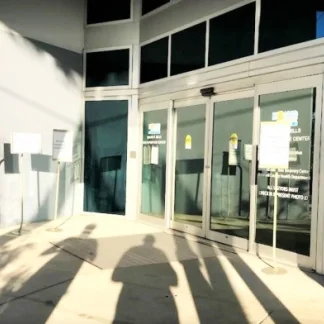CMET - Counseling Mediation Education and Treatment
CMET (Counseling Mediation Education and Treatment) is a private rehab located i...
Broward Addiction Recovery Center (BARC) - Edgar P. Mills Multi-Purpose Center offers outpatient services for adults who are struggling with substance abuse and co-occurring mental health disorders. BARC is located at Fort Lauderdale, Florida.
Broward Addiction Recovery Center (BARC) offers comprehensive services for those individuals ages 18 and over who are dealing with substance abuse and also co-occurring disorders. They have professional staff is dedicated to helping clients attain a healthy recovery.
The treatment focus on abstinence, and improving life skills, it also focus on interpersonal relationships and involvement in community support groups.
The services include flexible schedule of day and evening meetings, individual and group therapy and also education about the disease.
Contact us for more information: (954) 791-1006

Connect with BARC - Broward Addiction Recovery Center - Edgar P Mills Multi Purpose Center by calling their admissions team directly.
(954) 791-1006 Website Get DirectionsThe Joint Commission, formerly known as JCAHO, is a nonprofit organization that accredits rehab organizations and programs. Founded in 1951, the Joint Commision's mission is to improve the quality of patient care and demonstrating the quality of patient care.
Joint Commission Accreditation: Yes Accreditation Number: 598262
The Substance Abuse and Mental Health Services Administration (SAMHSA) is a branch of the U.S. Department of Health and Human Services. Established in 1992 by congress, SAMHSA's mission is to reduce the impact of substance abuse and mental illness on American's communities.
SAMHSA Listed: Yes
Research clearly demonstrates that recovery is far more successful and sustainable when loved ones like family members participate in rehab and substance abuse treatment. Genetic factors may be at play when it comes to drug and alcohol addiction, as well as mental health issues. Family dynamics often play a critical role in addiction triggers, and if properly educated, family members can be a strong source of support when it comes to rehabilitation. Family therapy is provided on a case-by-case basis.
Group therapy is any therapeutic work that happens in a group (not one-on-one). There are a number of different group therapy modalities, including support groups, experiential therapy, psycho-education, and more. Group therapy involves treatment as well as processing interaction between group members.
In individual therapy, a patient meets one-on-one with a trained psychologist or counselor. Therapy is a pivotal part of effective substance abuse treatment, as it often covers root causes of addiction, including challenges faced by the patient in their social, family, and work/school life.
Life skills trainings involve all the skills a person must have in order to function successfully in the world. These include time management, career guidance, money management, and effective communication. Truly successful addiction recovery is based on the ability to not only live substance-free, but to thrive. Life skills teaches the practical necessities of functioning in society, which sets clients up for success in life, and therefore sobriety.
Group therapy is any therapeutic work that happens in a group (not one-on-one). There are a number of different group therapy modalities, including support groups, experiential therapy, psycho-education, and more. Group therapy involves treatment as well as processing interaction between group members.
In individual therapy, a patient meets one-on-one with a trained psychologist or counselor. Therapy is a pivotal part of effective substance abuse treatment, as it often covers root causes of addiction, including challenges faced by the patient in their social, family, and work/school life.
Life skills trainings involve all the skills a person must have in order to function successfully in the world. These include time management, career guidance, money management, and effective communication. Truly successful addiction recovery is based on the ability to not only live substance-free, but to thrive. Life skills teaches the practical necessities of functioning in society, which sets clients up for success in life, and therefore sobriety.
In individual therapy, a patient meets one-on-one with a trained psychologist or counselor. Therapy is a pivotal part of effective substance abuse treatment, as it often covers root causes of addiction, including challenges faced by the patient in their social, family, and work/school life.
Life skills trainings involve all the skills a person must have in order to function successfully in the world. These include time management, career guidance, money management, and effective communication. Truly successful addiction recovery is based on the ability to not only live substance-free, but to thrive. Life skills teaches the practical necessities of functioning in society, which sets clients up for success in life, and therefore sobriety.
Life skills trainings involve all the skills a person must have in order to function successfully in the world. These include time management, career guidance, money management, and effective communication. Truly successful addiction recovery is based on the ability to not only live substance-free, but to thrive. Life skills teaches the practical necessities of functioning in society, which sets clients up for success in life, and therefore sobriety.
CMET (Counseling Mediation Education and Treatment) is a private rehab located i...
Peaceful Ridge Recovery offers treatment for substance abuse issues by providing...
Hope & Grace guide clients through the recovery process. Addiction recovery ...
Chrysalis Health – Broward Boulevard is a private rehab located in Fort Lauderda...